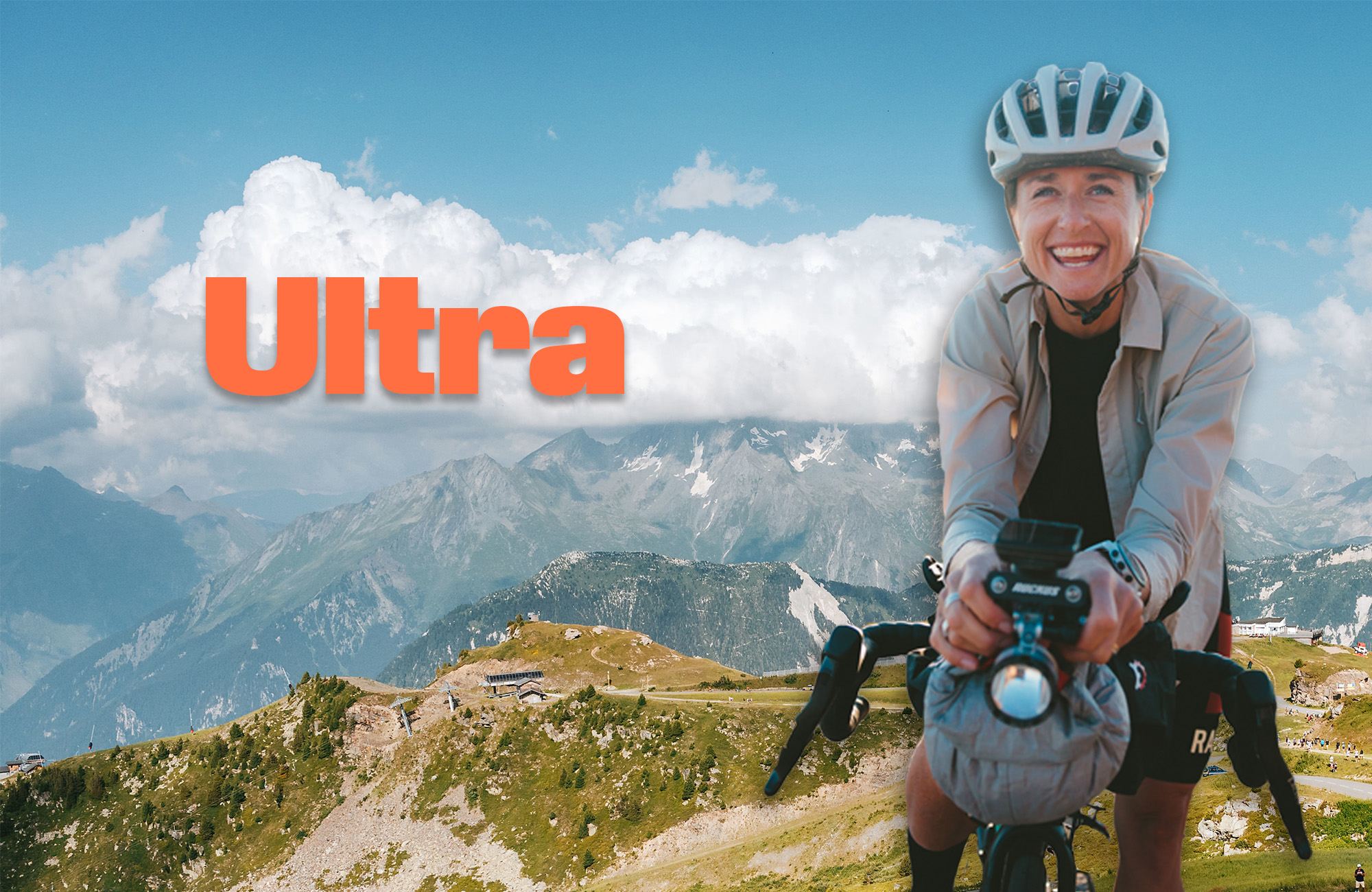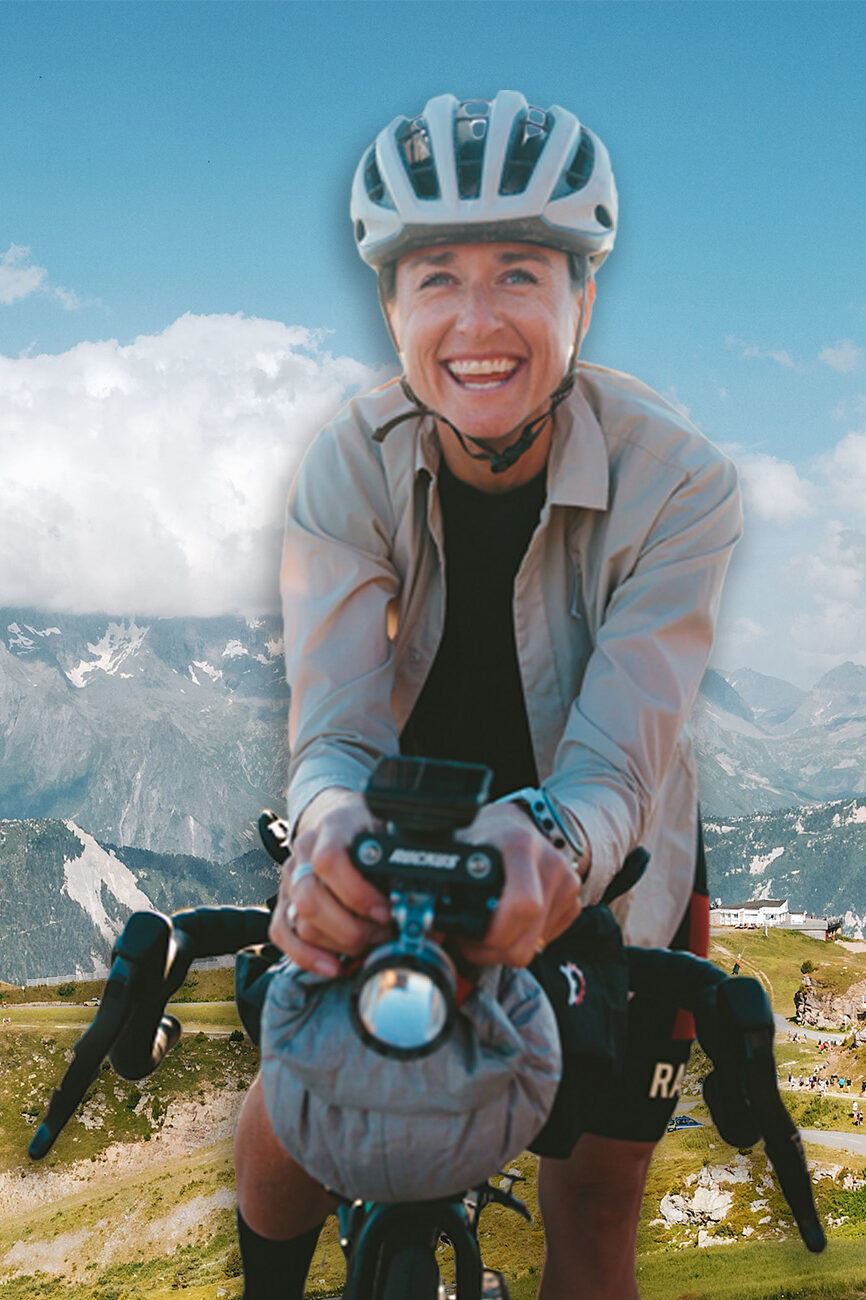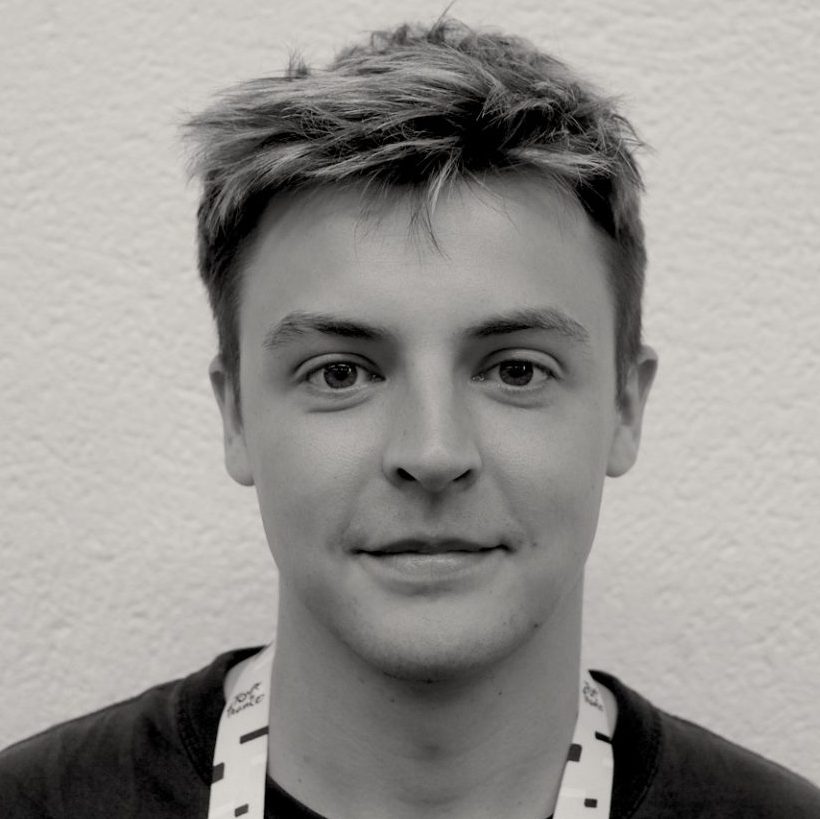In the first episode of a new limited podcast series we’re trying out called Ultra, we meet Lael Wilcox, who when we spoke was just about to set off to try and beat the women’s Around The World record.
She was the first American, and first woman, to win the Trans Am Bike Race; she set course records on the Tour Divide and Baja Divide routes; and she is now going to try and circumnavigate the globe in 110 days, two weeks quicker than the existing record set by Jenny Graham in 2018.
Having not started cycling properly until she was 20, and not racing until she was 28, the Alaska native is proof that no matter what you want to do, you can just go for it. Now 37, she’s taking on the Around The World record attempt while, in her words, the possibility of doing that still exists.
You can find the podcast audio where you usually find your Escape Collective podcasts (in that ‘everything feed’ that contains all of our output) and we have a YouTube video of the interview. But if written stories are more your thing, here’s the crux of the conversation I had with Lael.
The origins story
When Lael started riding ‘properly’ it was a way for her to travel cheaply, to really see the world and properly be in the place she was travelling through. She would work half of the year, taking double shifts at restaurants so that she could spend the other half of the year bikepacking. She had no fixed address, no car, no phone (!), and if she’d earned $12,000 to keep her going, that was a good year.
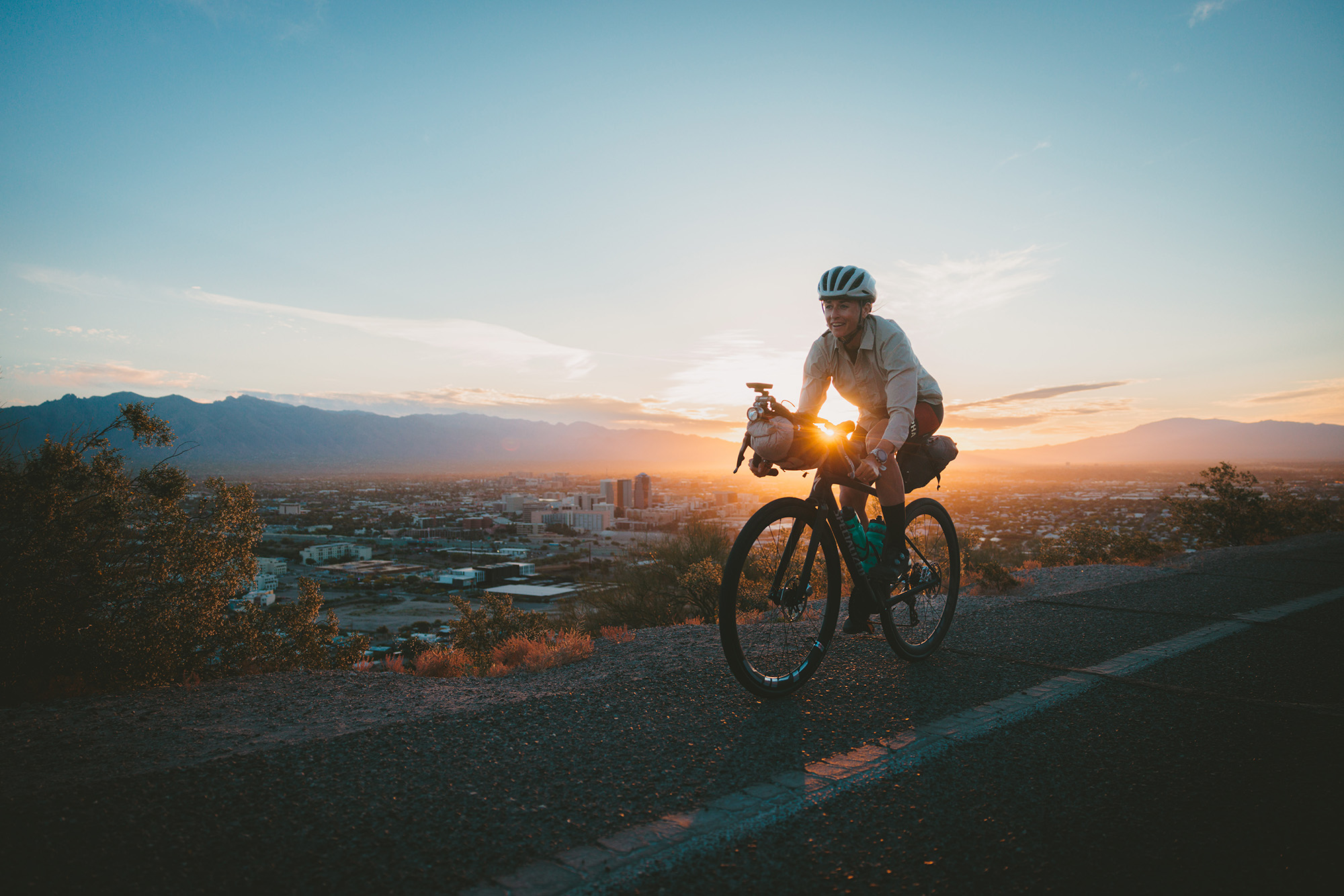
Her website has a great timeline feature, where you can trace Lael’s story in depth to the present, including how she borrowed her mum’s road bike for her first ultra race, the 2014 Fireweed 400 in Alaska, where she wasn’t even sure she’d manage to ride that far but managed to finish second.
In the years that followed she set the women’s Tour Divide record in 2015 and won the Trans-Am in 2016. In 2020, she finally decided to pursue racing full-time, winning Unbound XL in 2021 and the 2022 Badlands, amongst others, before riding 4,000 miles to the start of the 2023 Tour Divide and then winning that race too.
The world record attempt
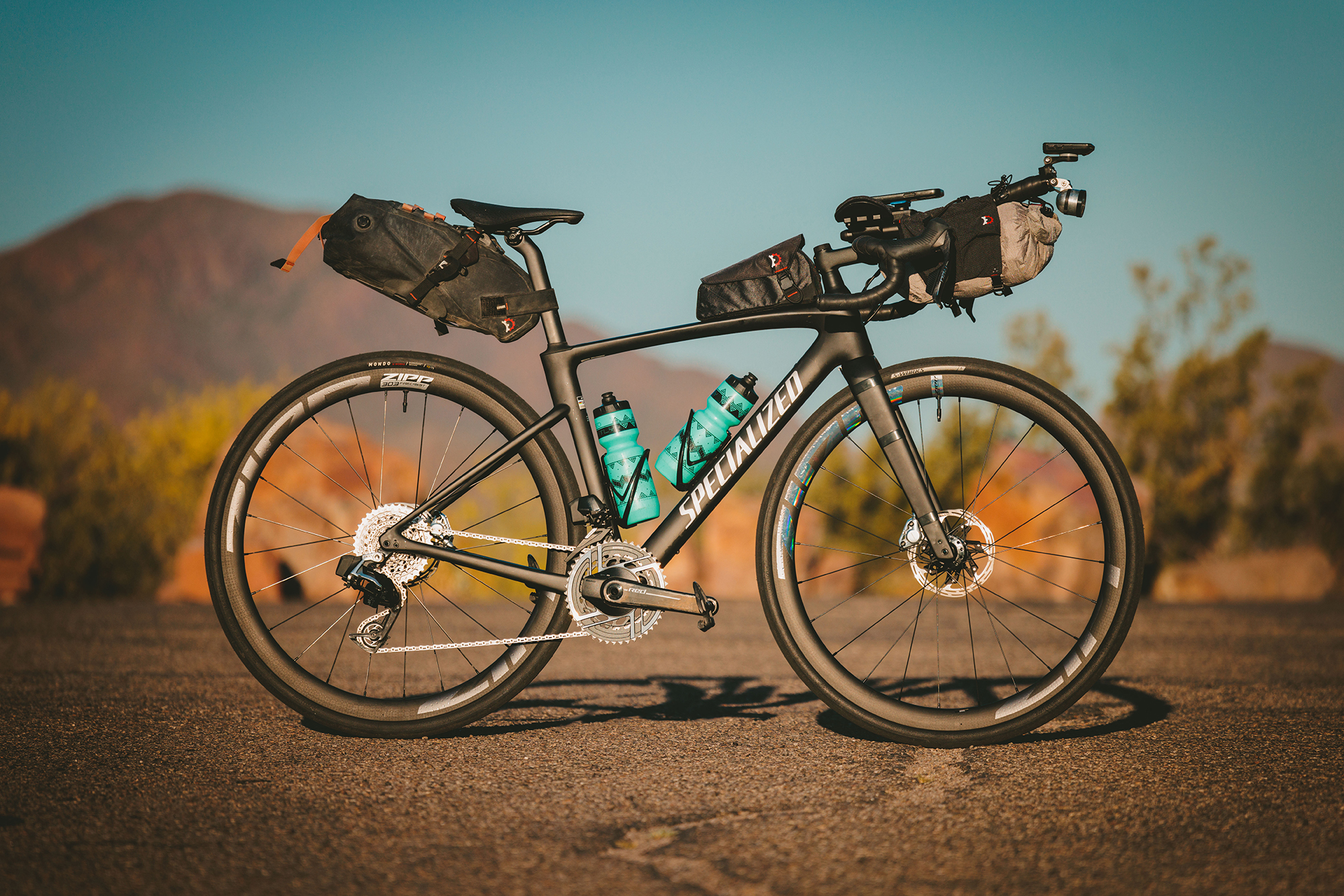
The Around The World record is a white whale for many ultra racers and bikepackers. Many who would target it have been put off by Russia’s war in Ukraine, effectively putting a well-trodden route out of service due to concerns over safety and border issues. Many have put the idea on their back burner, something to return to in the future.
For Lael, it’s the opposite. She sees the time when the feat will still be possible as running out. The climate emergency, as well as war, means she wants to get it done now, before it’s too late.
Her route begins in Chicago, United States, before riding to the Eastern seaboard, flying across to Portugal before riding across Europe to Georgia. Then another flight to Australia and New Zealand, which she will traverse, before flying home to Alaska and heading east once more to Chicago. That will give her the one continuous journey in a single direction through (approximately) two antipodal points around the world covering 18,000 miles by bike to count within the rules of an official circumnavigation.
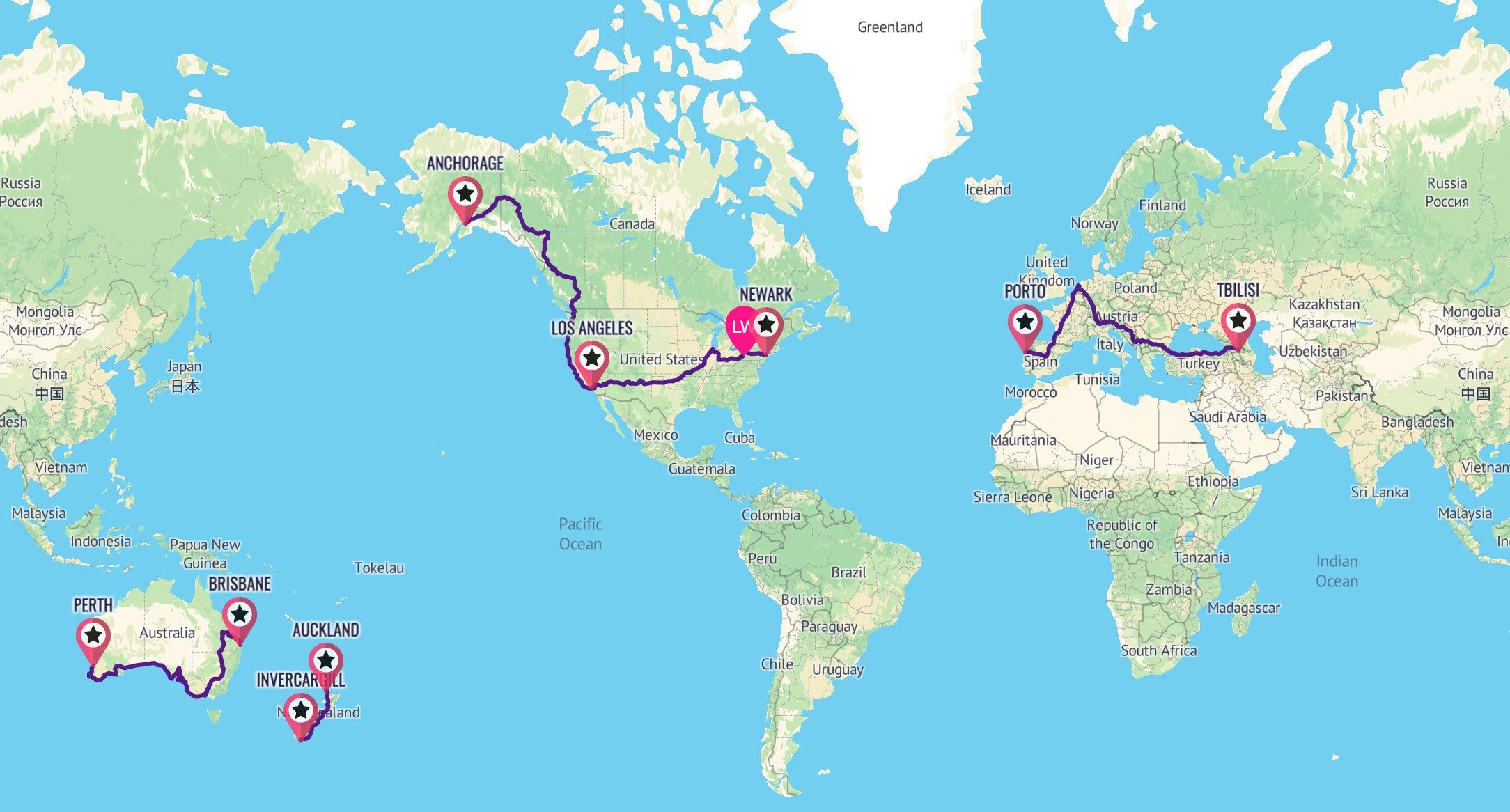
When we spoke, you could see Lael’s wife, the photojournalist Rugile “Rue” Kaladyte, rummaging around in the background, packing for a trip mere days away. Rue will be joining Lael to document the attempt. Guinness World Record rules do not distinguish between supported and unsupported and Lael will utilise a mixture of camping and hotels throughout.
Some quick math(s): 18,000 miles in 110 days works out to roughly 164 miles a day, or 263 kilometres. Travel and potential rest/recovery days will push this average up higher.
Lael set off from Chicago on Sunday May 26 and is currently making her way eastward. You can ‘dot watch’ her here, and get updates via Instagram from her here. She’s also recording regular podcasts herself if you want to hear how the attempt is going direct from the source.
What we learned about Lael
An Around The World record attempt is expensive. To make it somewhat plausible you need financial backing. For Lael this exists in a series of sponsorships. You will notice her dot watch is hosted on the Rapha website, her podcast is presented by Quad Lock, and she’s riding a Specialized Roubaix. The world is a different one to when Mark Beaumont revived interest in the Around The World record 16 years ago. Social media now means it’s much easier to get eyeballs on you, which brands want a piece of. It would be unfair to characterise a now-professional athlete who lived without a smart phone for years as a part of the influencer/privateer cycling class taking things to another level, but the internet has clearly been key in not only popularising ultra racing but in making Lael’s attempt possible.
She estimates she’ll spend at least $80 a day on food during her attempt, which if successful would make for a total food bill of $8,800, and that’s before taking into account hotel bills for when she’s not camping, and flights for the various legs of the ride. Quite easily, the budget can run into the tens of thousands of dollars, and for normal folk who aren’t sponsored and making an attempt part of their income, it would also be four months on the road not earning anything. There’s been a long road to this attempt, which Lael has clearly earned with every pedal stroke, but when she talks about being able to be a professional bikepacker and undertake this challenge as being a privilege, there’s a real truth to it. “Doing this professionally means I don’t have to find a restaurant job and do double shifts for six months to make this happen – what a gift. I’m in such a sweet position that I never thought was possible.”
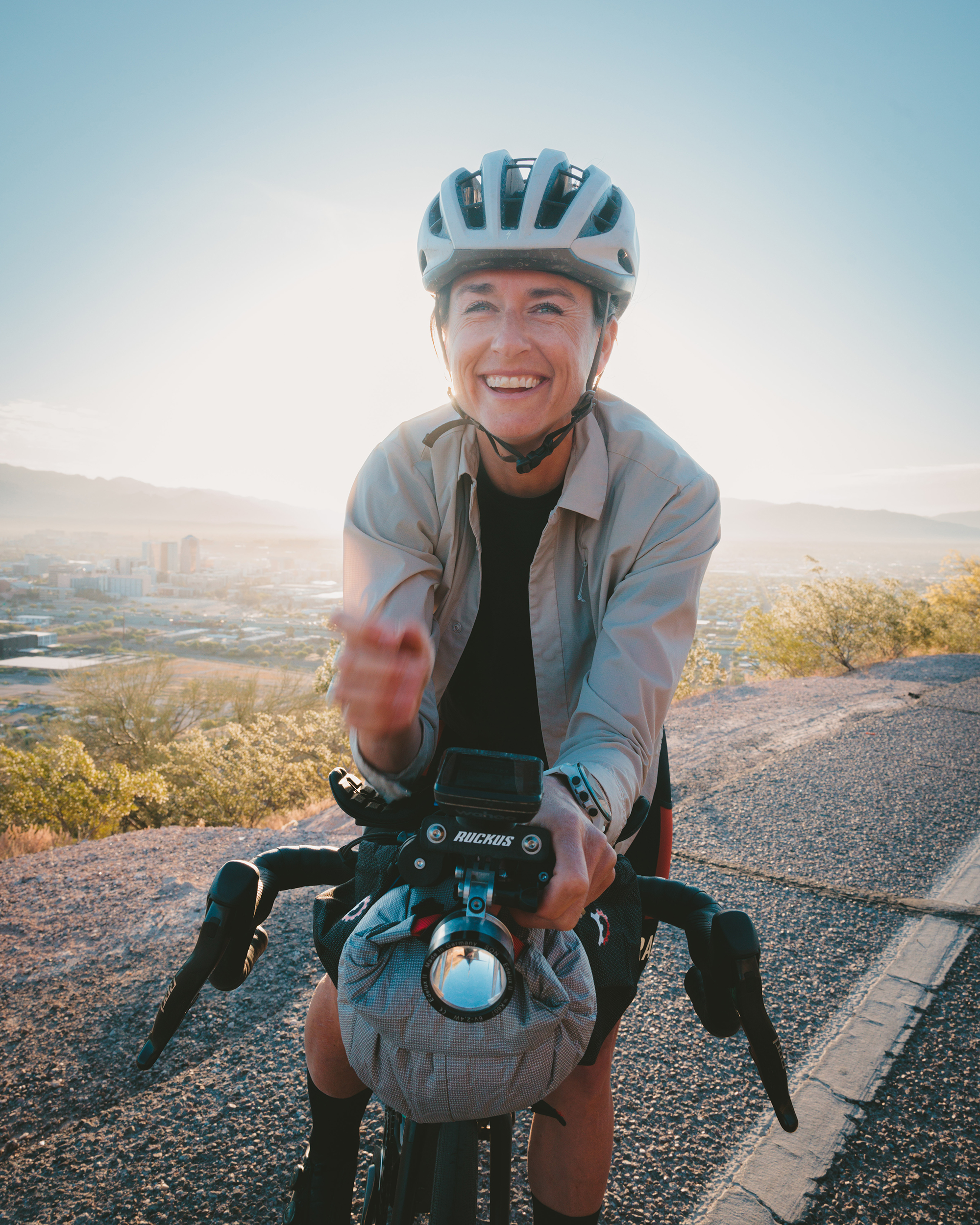
She describes herself as a bikepacker rather than an ultra racer. There is no doubt Lael is fast. The fact that for brevity’s sake we’ve only listed above a handful of the wins and records set speaks for itself, especially when Lael never really set out to be fast in the first place; she just discovered it herself.
Having come to the sport late, she admits to occasionally wondering what could have been had she not started racing at 28, and even then she was one of only a handful of women on each start line. She runs a GRIT cycling mentorship programme for girls in Anchorage, Alaska, who want to learn and do bikepacking. The life of any professional athlete can be a lonely one, and especially a sport where there are just endless miles upon endless miles, there needs to be a why to what you’re doing. On her record attempt, she’s inviting anyone and everyone to come and join her on the road. “I’m 37 years old, I’ve been attacking his since 2008, why would I keep doing this to myself when it’s so hard and requires so much sacrifice if I didn’t see it was actually changing the culture of the sport?” she asks. “It doesn’t just have to be a suffer-fest.” So much so that these extra-curriculars can now cut into her training time but she says she can’t let it go. “I care too much, so I just try to do it all.”
For a long time she thought the Around The World record was too dangerous for her. Having initially planned to begin her Around The World record continuing on directly from the 2016 Trans Am, but finding herself way too cooked afterwards that the plan was shelved. Riding on roads felt too risky also, and getting flights in between points seemed “convoluted” compared to the other point-to-point races she was knocking down, which seemed way more “literal”: Racing across America, down the Rockies, or around Kyrgyzstan. But then last spring, while riding 4,000 miles from Tucson, Arizona, up to the start of the Tour Divide she was enjoying riding mountain roads and covering big miles and felt the urge for something more, something bigger that felt like a huge bike tour. And what’s bigger than Around The World?
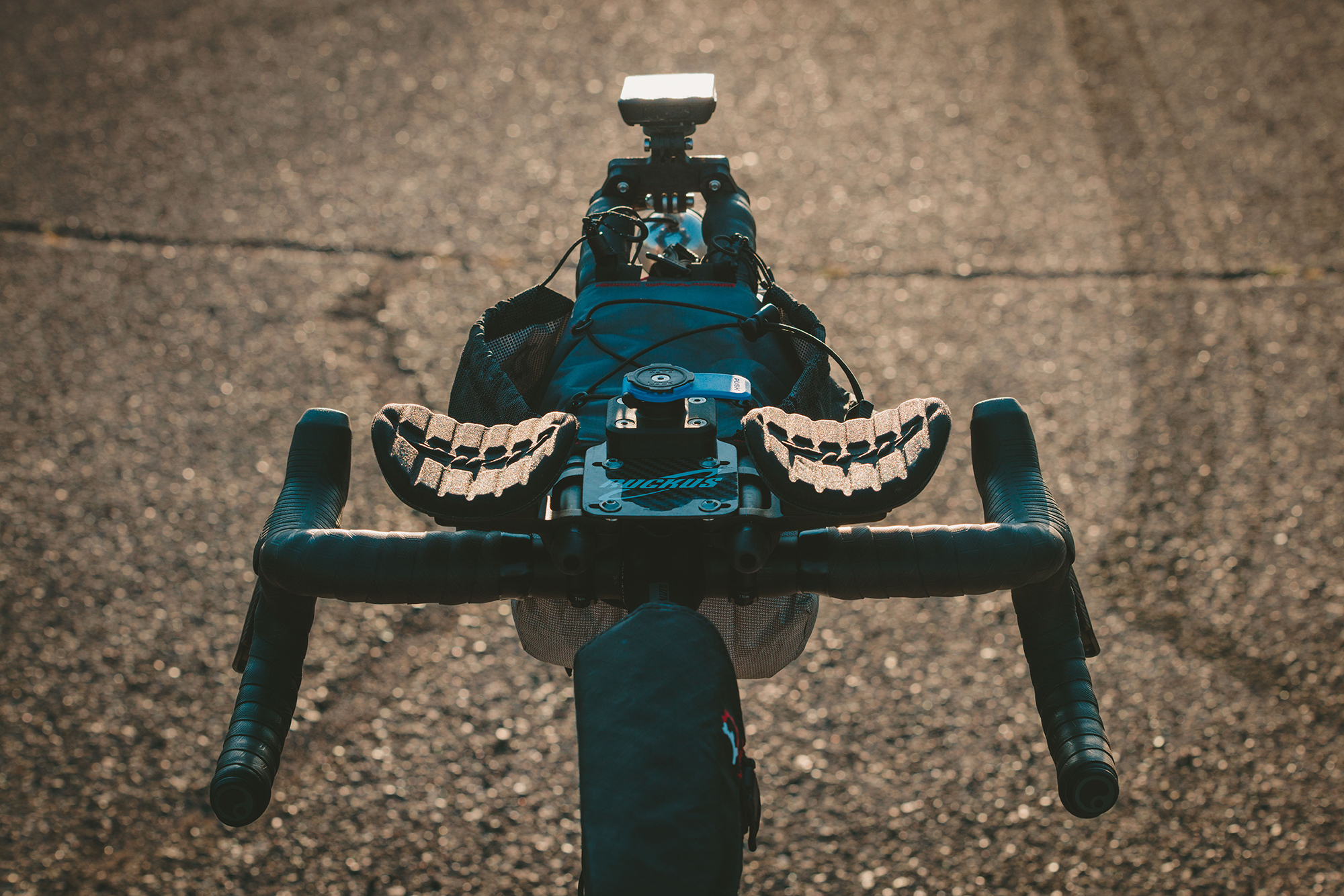
Anxieties are still there, obviously. In January she was waking up in the night thinking about gear problems, whereas now it’s more route-focused, fixating on things like flooding in Australia, despite the fact she won’t arrive there for a couple of months on her expected itinerary.
Route-sharing is the biggest change to ultra riding over the years. The various apps, like Strava and Komoot, make it much easier to share and find routes that are possible, whereas when Lael started she just used paper maps (the horror). Social media and YouTube also means people have more access to seeing riders undertaking huge challenges. “That’s always been the thing about sport. The reason sports grow is from media. From people sharing that these races, rides, and stories are happening. Bikepacking has been a bit behind on that so it’s harder for people to learn about that but when they do they get so excited. And it’s often people outside cycling who just want to go out for adventure and then the bike is just the best tool for that. You can cover more distance than being on foot, carry stuff on the bike, ride on so many surfaces. The internet boom has really helped the sport.”
“The whole time I’ve been pushing myself so hard that maybe I just can’t stop. Until I do the next thing.” That’s the thing about going big, is where does the search for your own limits stop? In 2025, Lael already plans to ride the Iditarod ITI 1000, a 1,000-mile race through the Alaskan wilderness where, when she raced the 350-mile version previously, temperatures were -40°F. “That is even scarier!” she says of comparing it to the Around The World attempt. “The urgency for me,” she says of not hesitating to break off these huge chunks of adventure, “is tied to climate change. There might be snow in five years up there, and it might not freeze hard enough for us to travel to these places and I just want to be able to try … I’m definitely pushing myself pretty hard … but what a gift to be alive! I’ve got to try!”
“I’m so grateful I get a shot,” she says of the circumnavigation she’s about to undetake. “So I think I better take it, you know?”
Ultra is a new, limited-series podcast from Escape Collective. That means anything that’s big, pretty much: Bikepacking, ultra racing, cyclists living lives on the fringes of what many people think possible, doing mad rides in far-flung places.
Episodes will be available in the places you usually get your Escape Collective podcasts from, those ‘everything feeds’ that contain all of our podcast offerings, as well as a video version on YouTube. There will also be an accompanying article that will provide a summary and main takeaways from the conversation for those who prefer reading rather than listening.
To be clear, we’re not fully stepping into the bikepacking and ultra beat with wall-to-wall coverage; it’s just something we’re trying out. Pedalling out from our house and seeing how far we go. We’ll probably be coming at you with something new about once a month.
What did you think of this story?
